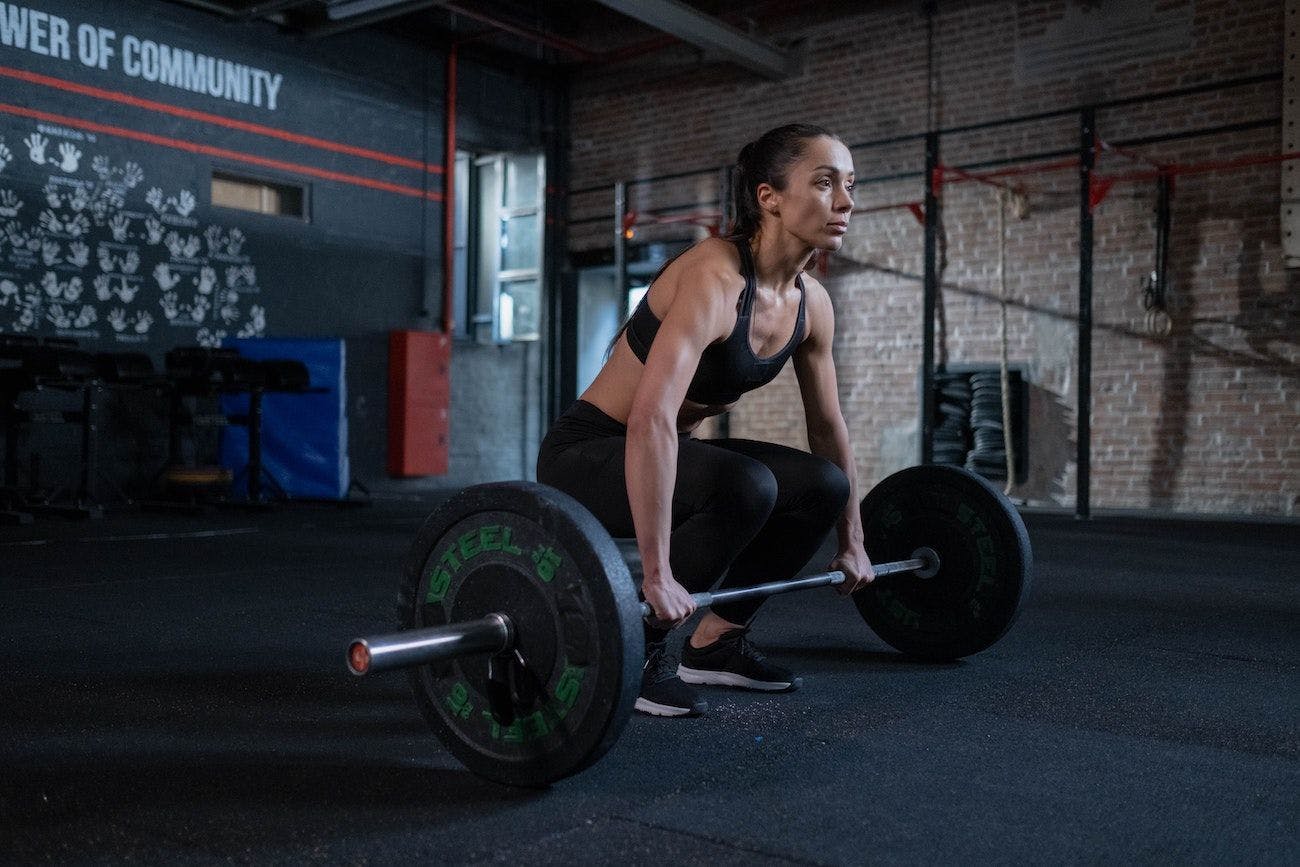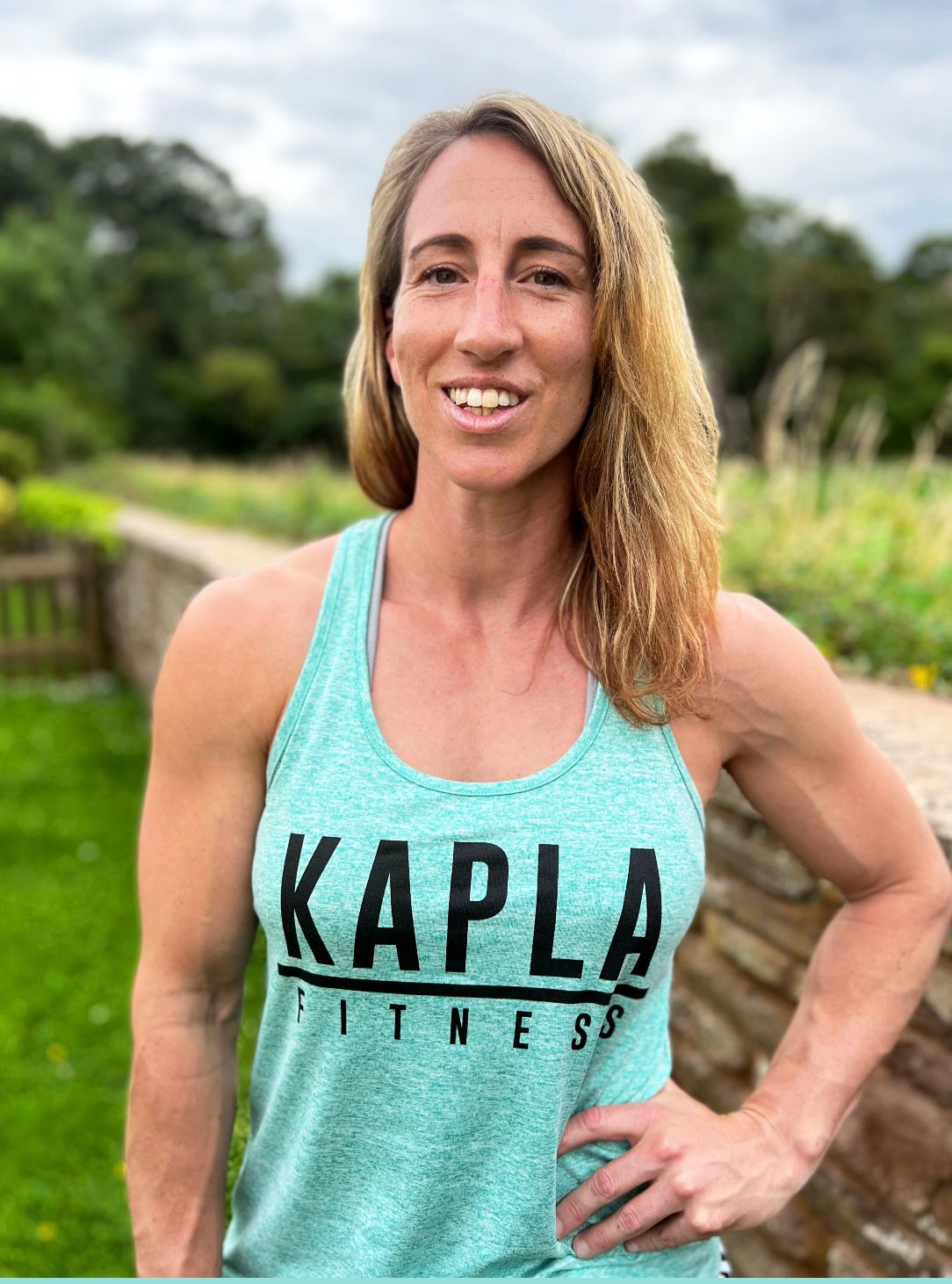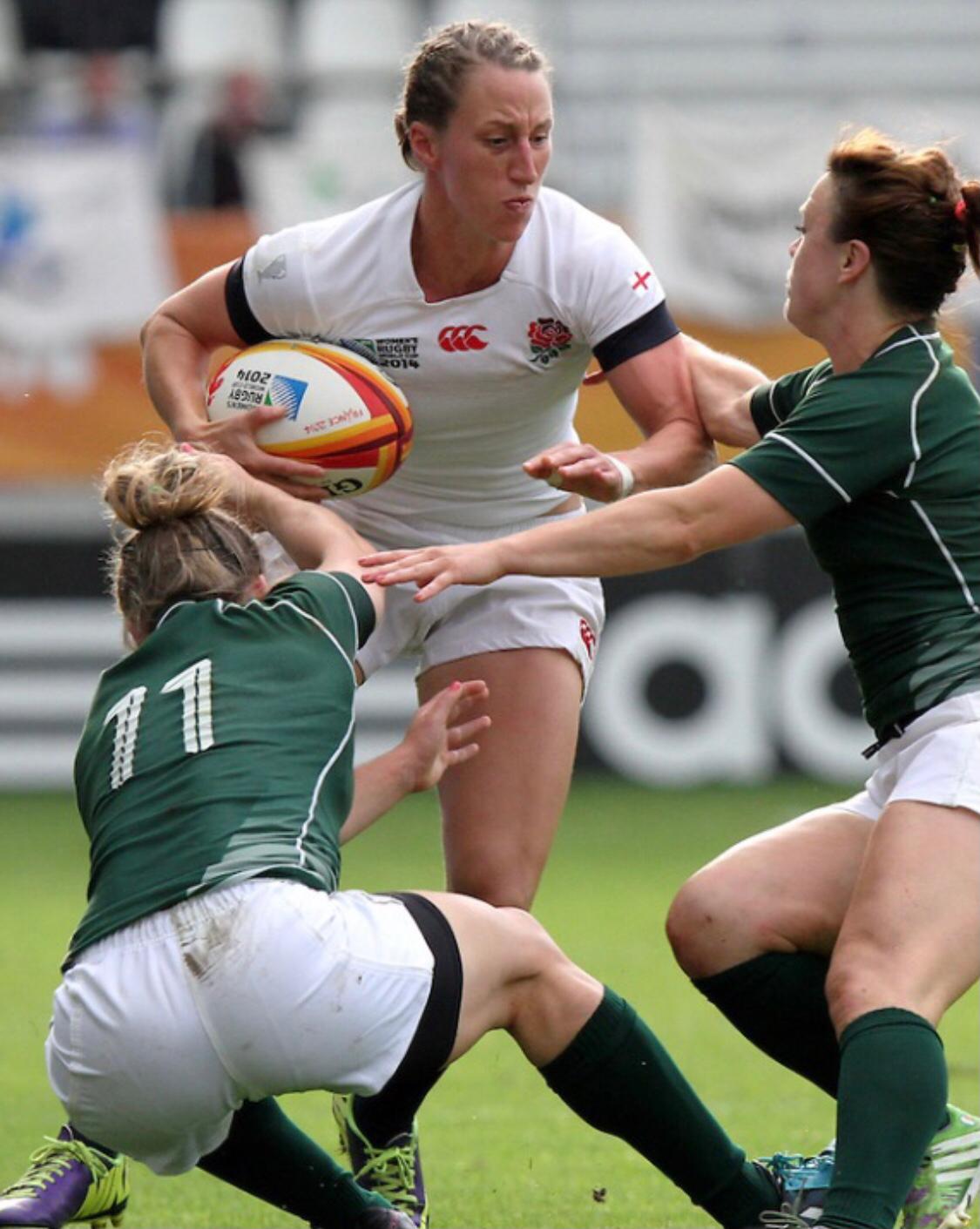Women in sport: How can we tackle the negative ‘strong woman’ stereotype?
updated on Sep 14, 2022

Former England rugby player Kat Merchant shares her experience of ‘fit shaming’ and how she deals with it
As a former England rugby player, I have always been a ‘strong woman’. It was my job to be the strongest and fittest I could be to win, and that meant being physically muscular to be at peak performance every time I stepped onto the pitch.
Elite women in the sporting spotlight face a huge amount of pressure to perform and look a certain way, which also means our bodies often get judged harshly – particularly in my line of sport. Women rugby players have consistently had to deal with labels like ‘manly’ and ‘unfeminine’. Critics have placed more value in the way we look rather than the way we play, without realising the negative effect this has on our mental health and body confidence.
I’ve received a torrent of online abuse over the years, criticising my muscular appearance as a woman. Society still associates muscle and strength with masculinity – a harmful, outdated stereotype that stops young girls and women from getting into sports and having confidence in their own skin.

The first time I received online hate about my appearance was in response to a video of me doing a bicep curl I had uploaded to Instagram. As a personal trainer, it’s important in my line of work to demonstrate the exercise, and to show the right technique for others to follow. That’s the positive side of social media, it makes training skills accessible to a wide audience wanting to better their fitness. But someone decided to respond very negatively, sending a video of them retching at me. At first, seeing that reaction really knocked my confidence. I couldn’t understand why someone felt it necessary to be so hurtful – it even made me consider coming off of social media completely.
I discussed it with my partner, who suggested that I turn it around and show people strength in responding and not letting it affect me. Out of a negative experience, I had been given the opportunity to make female strength more standardised. I could use my platform to actually raise awareness about the abuse strong women get, and hopefully make a difference in a positive way.
It has taken time for me to get to a point where I am less affected mentally, because it is something that can chip away at your confidence and you do get sick of it. But for me, it was almost like doubling down on the hate. Now, if someone comments ‘you look like a man’ on any of my pictures, I respond with another picture where I look really muscular, just to show that not only are they wrong, but there are also consequences for somebody saying something insensitive that can negatively affect someone’s mental health.
Lots of people feel a certain sense of anonymity on social media, where they can say what they like without taking any responsibility. By calling out people’s hate on my platform, it shows that you can’t just say something and be nameless. 99% of the time when I repost a negative comment I have received – not being nasty back to them, but simply highlighting the comment and responding ‘actually, women can be strong too’ – they delete their comment anyway. My hope is that it might make them think twice about doing it to someone else in the future.

The idea is that by setting a good example, women will feel more confident in their bodies without the social pressures to look a certain way. There weren’t as many athletic women in the media when I was younger and coming through into the spotlight with the England team, so I used to try and hide my muscles for fear of being judged.
Now, there are so many more positive female role models out there, which is great for younger women aspiring to achieve in sport, and who just want to feel more positive about their bodies. There are more and more women in the public eye and on social media who are performing in a way that other women want to perform too, because it’s not all about what your body looks like – it’s about the amazing things it can do.
So, how can we continue to tackle the negative ‘strong woman’ stereotype? There are four things I always keep in mind when facing down and overcoming online hate:
1. Realise it’s their issue, not yours
It’s your body, your platform, and your choice to do what you want with it. You can never please everyone, and you shouldn’t try to.
2. Surround yourself with positive people
There is nothing more powerful than keeping a close circle of supportive and like-minded people around you.
3. Just keep doing what you’re doing
If training hard and feeling strong makes you happy, don’t give it up for the sake of a stranger’s opinion.
4. Remember that you have the control over it
Block, report or respond – however you choose to handle online hate, you have the power to make that decision.
There will always be days where your confidence in yourself and your abilities is low. But developing the resilience and the positive mindset to rise above other people’s opinions and focus on yourself will give you strength in the knowledge that you can cope with certain situations. Being strong isn’t just about being physically strong – it can make you feel mentally stronger too, and give you that all-important body positivity to feel comfortable in your own skin.
Follow Kat on Instagram.
If you are struggling with the effects of online abuse, know that help is available. Learn more at Get Safe Online, and if you're looking to speak with a therapist, visit Counselling Directory.

